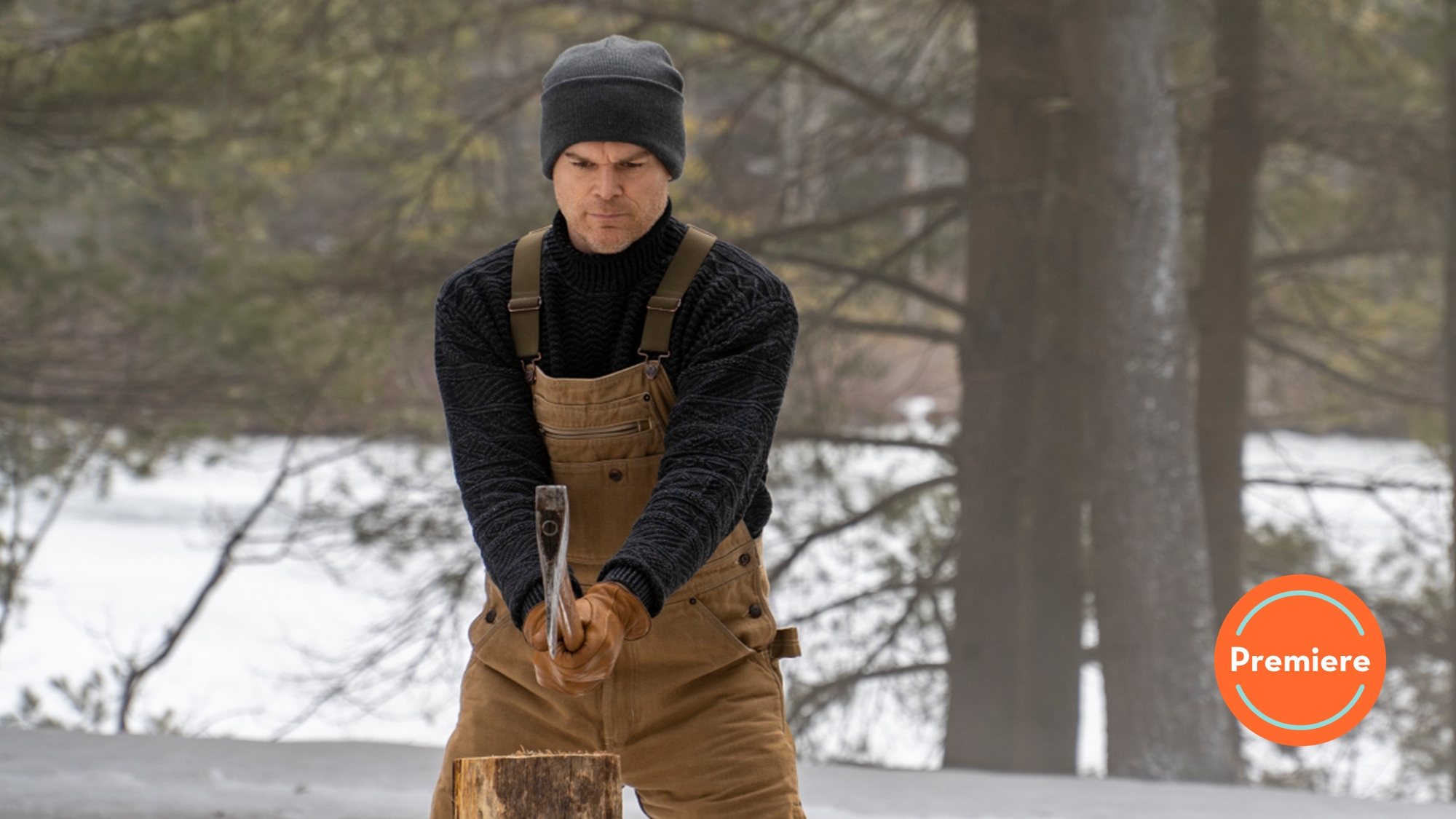Dexter Morgan is a domesticated monster in the ho-hum New Blood premiere
The reappearance of a familiar face could jolt the Showtime revival awake. But there's at least one huge red flag in the series premiere.


Since its announcement, Dexter: New Blood has become something of an inkblot test for its potential audience. To some, New Blood promises a fresh (and potentially open-ended) start for a character that remained fascinating even when the show around him was anything but. To others, it offers the rare opportunity for Dexter to replace its infamously risible and unsatisfying conclusion with something more befitting a once-celebrated cable drama. And to others, New Blood merely symbolizes Hollywood’s lazy, ruinous nostalgia, which results in the reanimation of even the most dubious franchises while new ideas languish in the development pipeline. “See! I told you so,” will be the rallying cry of… well, anyone from any of those constituencies, honestly, now that New Blood has aired its first installment.
If you simply love Dexter Morgan and his brand of vigilante justice, the superhero version of the character that emerged once the body count became too high to justify, “Cold Snap” has to be thrilling. Opening with a montage set to Iggy Pop’s “The Passenger” was perhaps showrunner Clyde Phillips’ shrewdest decision. The establishing sequence has such a playfulness about it between the song itself and its relevance to how Dexter now finds himself a decade after sailing the Slice Of Life directly into Hurricane Laura. It’s hard not to smile when Dexter dilly-dallies in a garden shed pleading to be turned into a kill room or sets up a lure in an ice-fishing hole that’s entirely too wide for its stated purpose.
There’s a seriousness of purpose to all of the choices made by Phillips and returning director Marcos Siega in a stretch of Dexter that plays, for once, like a silent film. There’s none of Dexter’s constant blathering, just an entirely new slice-of-life that feels completely set apart from the many entanglements he created in Miami. (At the risk of paying too rich a compliment, the opening is reminiscent of the first wordless moments spent with Daniel Plainview in There Will Be Blood.)
It’s hard to argue with the competence of New Blood, which was conceived and realized by veteran television storytellers who can wring something compelling from less than a serial killer working as a blood-spatter analyst. Why, then, is “Cold Snap” so lifeless and limp?
First, an update on where things stand with America’s most self-righteous serial killer. Having faked his own death, Dexter is now living as James “Jim” Lindsay in Iron Lake, a fictional New York village worthy of being depicted in watercolors on a two-cent stamp. He lives in a remote cottage with some animals and appears to have worked the logging bug out of his system. These days, “Jim” is just a mild-mannered sales clerk at a family-owned fish and game store. Most people would probably stop there, as Iron Lake is the kind of environment to which people relocate precisely to be left alone to commune with their regrets. Were he to stay out of sight except to fulfill his work shifts, the townspeople of Iron Lake would probably pride themselves on staying out of his personal affairs.
But this is Dexter Morgan, so of course, he has made sure to install himself as deeply as possible into the social tapestry of his new town. (Y’know, because the walls can’t slowly close in on you if you haven’t built any walls.) And so he’s in a relationship with Sheriff Angela, one so torrid as to include uniformed roleplay trysts first thing in the morning. Dexter has gotten well acquainted with Angela’s officers and her spitfire daughter Audrey. He’s on a fake-first-name basis with just about everybody in the town and has a tab open at the local watering hole, where he’s all too happy to join in on the line-dancing. He hasn’t killed so much as an animal in nearly a decade, despite now being in an environment that actively encourages killing for sport.
In as much as Dexter is an addiction narrative, the beginning of “Cold Snap” represents what should be regarded as the best version of Dexter we’ve ever seen. By the end of the episode, he’s calling himself an “evolved monster,” but the evolution is on display from the beginning. Dexter was gobsmacked when Rita first revealed being pregnant with Harrison back in season 3, in part because his sex life with Rita was a component of his performative humanity that he forgot it could produce an actual baby.
Now Dexter is enjoying vigorous backseat hookups that seem just as much based on his desires as Angela’s. His genuine interest in Fred Junior’s personal life seems to confirm that Dexter has been pretending to be charming long enough that he’s not really pretending anymore.
The artist currently known as Jim Lindsay is, to borrow from Rob Zombie, more human than a human. He is someone who James Doakes, were he alive today, would invite out for beer and darts and would never describe as a “creep motherfucker.” It’s a huge accomplishment of which Jim Lindsay should be incredibly proud. But Dexter Morgan was most often portrayed as a superhero who had channeled his murderous talent into a form of public service.
That’s the version of the character you spent the most time with if you watched all eight seasons of Dexter, and seeing him laid low in this way is kind of a bummer even if it represents important growth for the character. Jim Lindsay is a former titan turned pitiful spectacle in the vein of Gene Takavic, mild-mannered Cinnabon manager or the thick-thighed Thor of Avengers: Endgame. (There’s a super-quick daily routine montage that drives the point home.)
Of course, Dexter is about to have his new normal thrown out by a confluence of shocking events that would have landed more powerfully had they been parceled out gradually. The first is the arrival of Matthew Caldwell, who broadly represents “rich asshole season,” the influx of privileged, trigger-happy tourists that engulfs Iron Lake when the hunting conditions peak. Matthew is not just an unbelievable dick, or an irresponsible drunk, or a bad friend who bird-dogs his best friend’s female acquaintances. He’s also responsible for a boating collision that left five people dead and was an act of pure malice. And nearly kills Dexter as he shoots the white buck whose life Dexter has spared multiple times in a nod to his sobriety. Matthew, then, is a mass murderer who poses an active safety threat to anyone he comes into contact with.
The characterization of Matthew, the man for whom Dexter doesn’t mind rolling off the wagon, is a huge red flag for the season. For all the rightful derision directed toward the post-Phillips seasons of Dexter, there’s not enough acknowledgment that the foundational issues that led to those seasons present themselves well before Phillips left. In “The Dark Defender,” the fifth episode of season 2, Dexter begins to fantasize about being an actual comic book hero which allowed the show to steer away from the thornier questions the character represents or a responsibility to punish his actions.
Superhero Dexter remains the main character of this show, so when he inevitably kills Matthew in the latest incarnation of his plastic-lined killed room, he’s not having quite the relapse “Cold Snap” keeps foreshadowing. No, this is Dexter reverting to his terrible old habits within a framework that allows him to feel like he’s doing Iron Lake, and the world, a favor.
The more intriguing development is the appearance of an adolescent Harrison, who has managed to track Dexter from somewhere in Argentina to upstate New York in a process we’ll hopefully hear a lot more about. Of all the reasons to reanimate Dexter, the most thematically promising thread is Dexter as a father, specifically to a boy who had the same traumatic blood baptism that sent him down a murderous path.
Is Harrison destined to kill? Can Dexter impress the code of Harry onto him before something terrible happens? Will Dexter learn that Harrison can choose not to kill, suggesting that he could have also taken that path without Harry’s influence? The fun part of “Cold Snap” was in those questions, not in watching Dexter eliminate yet another cartoonishly terrible person.
The vicariously violent version of this show simply won’t hunt, not in 2021, with so many antihero stories that confront rather than conveniently dodge the moral quandaries such a character creates. Hopefully the unpleasantness with Matthew will prove an unsavory means to an elegant end. This is, after all, definitely Dexter’s last shot at one.
Stray observations
- It’s nice to have Jennifer Carpenter back in this role, and simply seeing her and Hall back together in front of the camera is a lot of fun. I need more Debra f-bombs though and less of this Touched By An Angel version of foul-mouthed Deb.
- It’s safe to say Dexter won’t have much to worry about in the way of law enforcement interference in a town where pie theft is the most pressing crime. That said, taking up with the sheriff is baffling any way you slice it. What are you doing, Dexter?!
- I’m a big fan of Alano Miller and am hoping he gets something interesting to do, perhaps as the new Doakes.
- Looks like the season is going to touch on the issue of murdered and missing Indigenous women, which could be interesting.
- I found the music in the episode kind of distracting outside of “The Passenger,” in terms of needle drops and score alike.